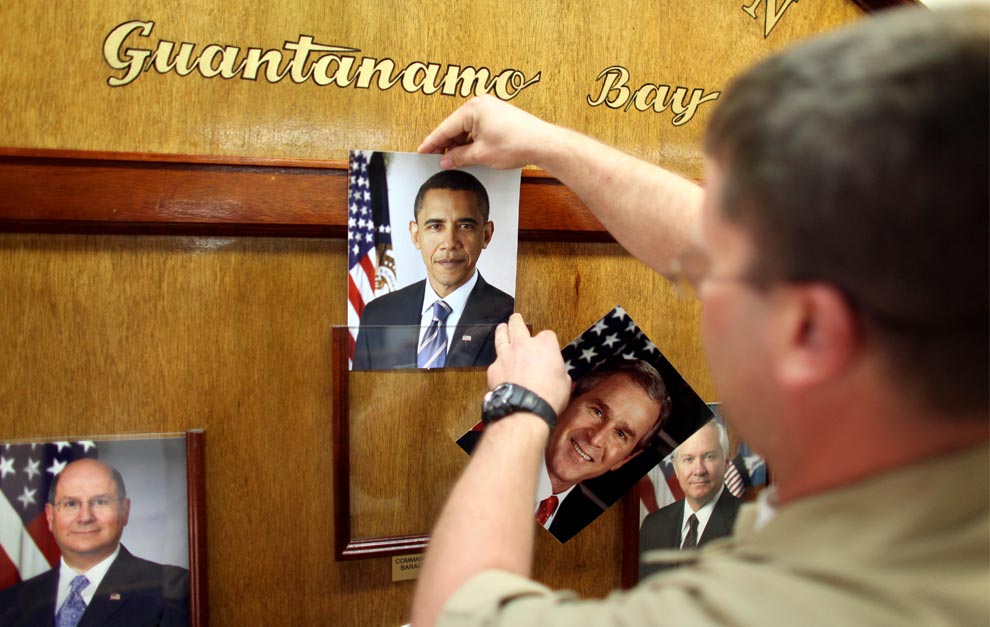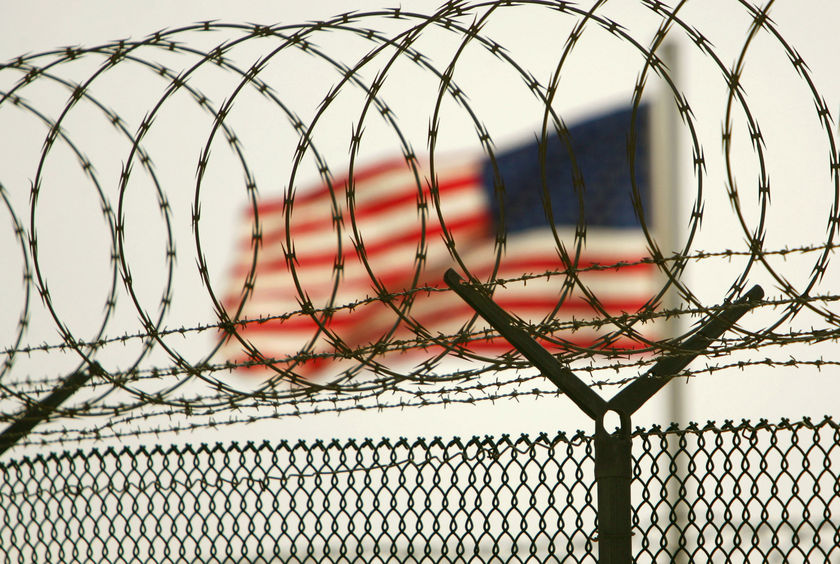
“[T]he orders [also] bring to an end a Central Intelligence Agency program that kept terrorism suspects in secret custody for months or years, a practice that has brought fierce criticism from foreign governments and human rights activists. They will also prohibit the C.I.A. from using coercive interrogation methods, requiring the agency to follow the same rules used by the military in interrogating terrorism suspects, government officials said.“
And there was much rejoicing! We can all breathe a little easier and stand a little taller now that America is actually starting to act like America again. (And, trust me, I won’t shed any tears over dropping the gulag and torture news category here at GitM.)
Btw, the “new sheriff in town” pic above is via The Big Picture’s very worthwhile inaugural collection, as seen at Webgoddess.


